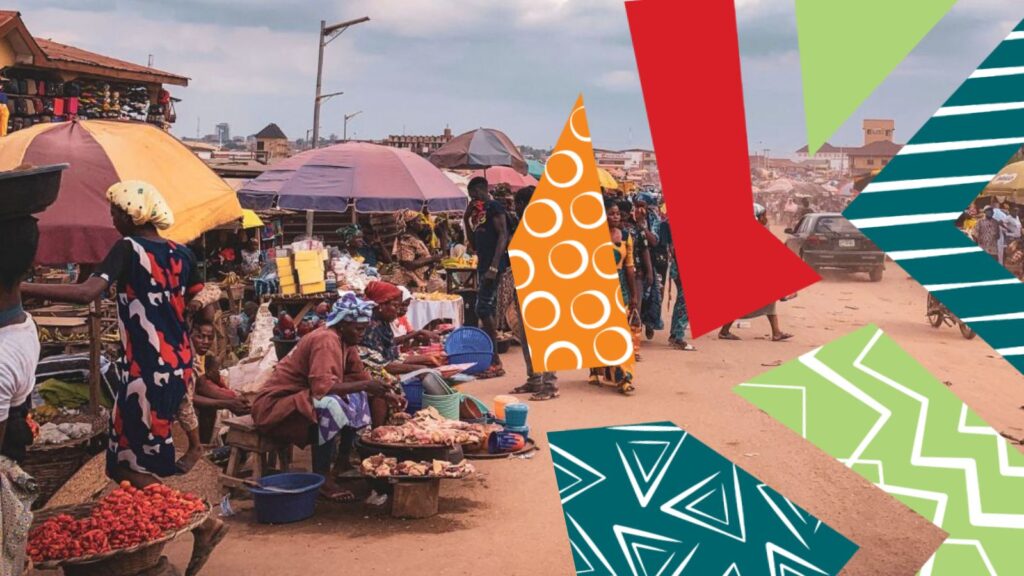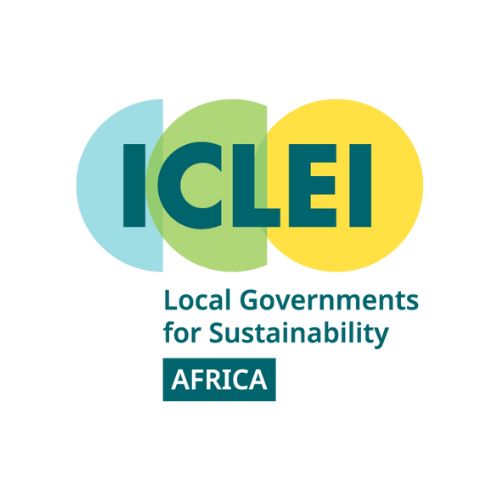Home » Explore the latest project news » Cultivating connections
Cultivating connections
How AfriFOODlinks Youth Ambassadors are shaping urban food systems
The AfriFOODlinks project is a pioneer initiative aimed at catalysing urban food systems transformation from Africa to Europe. In recognition of the critical role that young people play in social innovation, the project has created the Youth Ambassadors Programme designed to promote cohesion within the project and deliver effective change, with the appointment of 23 youth ambassadors across 19 cities. Key activities of the program are structured around disseminating urban food systems knowledge and excitement about transforming this food system. Each Youth Ambassador facilitates face-to-face gatherings that enhance in-city networks and create unique experiences that offer better insight into the city’s food system. They help provide rich and varied content that elaborates on the food culture, entrepreneurship, innovation, food safety, markets, and organisations that inspire them in their cities. These stories illuminate the everyday initiatives and challenges of those working in the food system, adding freshness and sometimes unexpected insights to the project.
The role of youth ambassadors
The youth ambassadors have significantly enriched the project by enhancing engagement and contributions from a diverse array of stakeholders, while also strengthening community networking. Their content contributions span across various themes including food culture, innovation, indigenous ingredients, market spaces, food safety, inspiring entrepreneurs, and local organisations, among others. Reflecting on their experiences, ambassadors emphasise the programme’s invaluable role in supporting their professional growth. They expand their networks and knowledge base through site visits, participation in city exchanges, workshops, and engaging discussions, as well as through documenting various activities within the food system.
They coordinate city-level activations, sometimes bringing AfriFOODlinks partners, researchers, city officials, and other non-project actors in the food system together in unexpected configurations. These events were intended to create cohesion among various project participants and non-project stakeholders through the efforts of the youth ambassadors, leading to a more integrated approach toward addressing the issues of the food system. The activations are organised action opportunities to mobilise communities of people around certain challenges or highlighting unique aspects of their city’s food system. These range from discussions, events, marches, sometimes including local officials, and are documented and shared on social media to raise interest and encourage support for project interventions. City-level activations are an important element of advocacy work, drawing attention to important issues and engaging residents, organisations, and leaders at the local level to mobilise support for interventions. This is one way in which the youth ambassadors, through incremental actions, push forward social innovation for a more resilient food future across Africa and Europe.
Spotlight on ambassadors and their activations
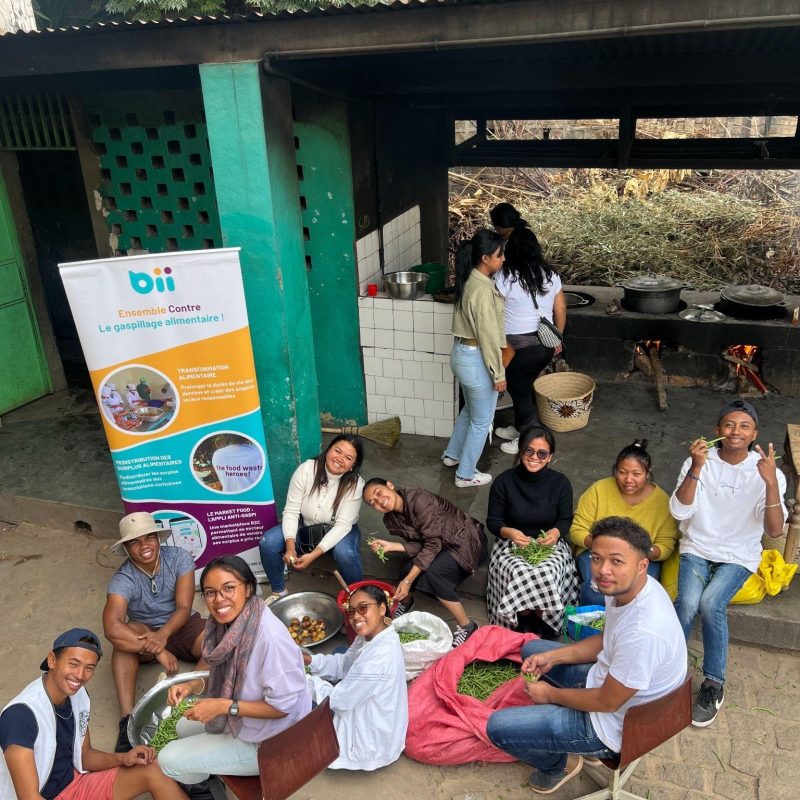
Johary Tsiory ‘Tiakaly’ from Antananarivo:
Bii Madagascar Disco Soup: 20 April 2024
In collaboration with Bii Madagascar, Tiakaly hosted an event aimed to raise awareness about food waste and promote responsible consumption at the Akany Avoko Ambohidratrimo Center for youth and children in Antananarivo. Over 240 children and the centre staff participated in preparing meals from recovered food items, such as rice, vegetable peels, and yoghurt. The day included interactive workshops, discussions, and games. A highlight of the event was the tasting of meals prepared from the recovered food. Despite initial scepticism about using reclaimed ingredients, the final dishes turned out to be delicious, demonstrating the potential of transforming waste into nutritious meals.
“I want people to see that they can do more with what they already have. And that when we are together, we can accomplish great things.” – Tiakaly
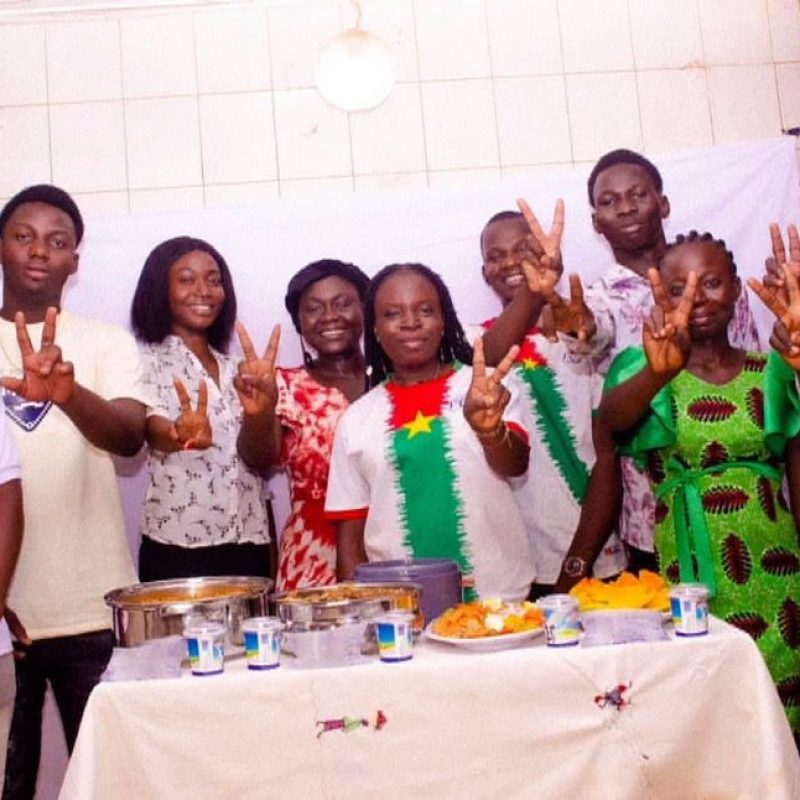
Farida Tiemtore from Ouagadougou:
Nutritious cooking workshop: 26 May 2024
Farida Tiemtore coordinated a nutrition and cooking workshop on World Health Day in Ouagadougou targeted at exploring nutrition with young people in the city. They were joined by nutritionist Florentine Nikiema, diving into the nitty-gritty of nutrition basics and busting common food myths.
Participants, split into groups, rolled up their sleeves for a hands-on cooking session that allowed them to apply their new knowledge and enjoy a shared meal. This workshop didn’t just teach—it inspired. One participant reflected that they had never realised eating healthy could be so delicious and accessible. They left wanting to try to prepare these dishes at home for their family. This reaction perfectly reflects the objective of the workshop: to show that healthy nutrition is not only beneficial for health, but also enjoyable and accessible to everyone.
“Seeing the participants apply the theoretical knowledge they had just acquired to prepare balanced dishes was extremely rewarding. This type of feedback motivates me to continue nutrition awareness and education efforts.” – Farida Tiemtore
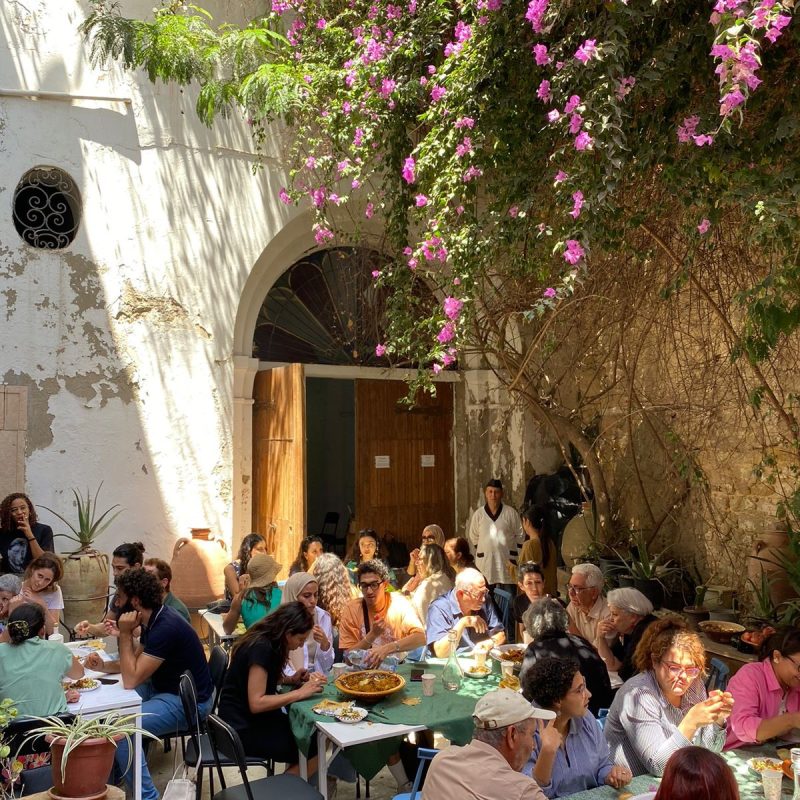
Adel Azouni from Tunis:
Seeds: 24 May 2024
At L’Art Rue in Tunis, Adel Azouni coordinated a vibrant event featuring a film screening, roundtable, and shared lunch. The event highlighted Fathia Khedir’s documentary “Seeds,” which explores the importance of indigenous seeds for food sovereignty. A roundtable discussion on Tunisia’s food systems included insights from members of the “Ommi Faiza vegetable garden” initiative, moderated by environmental activist Nour Mansour. The day concluded with a community meal of vegetarian couscous, fostering meaningful exchanges in a convivial atmosphere. The event was lauded by those who attended as social innovation, as it nurtured a strong sense of collective responsibility for the local food system through curated moments.
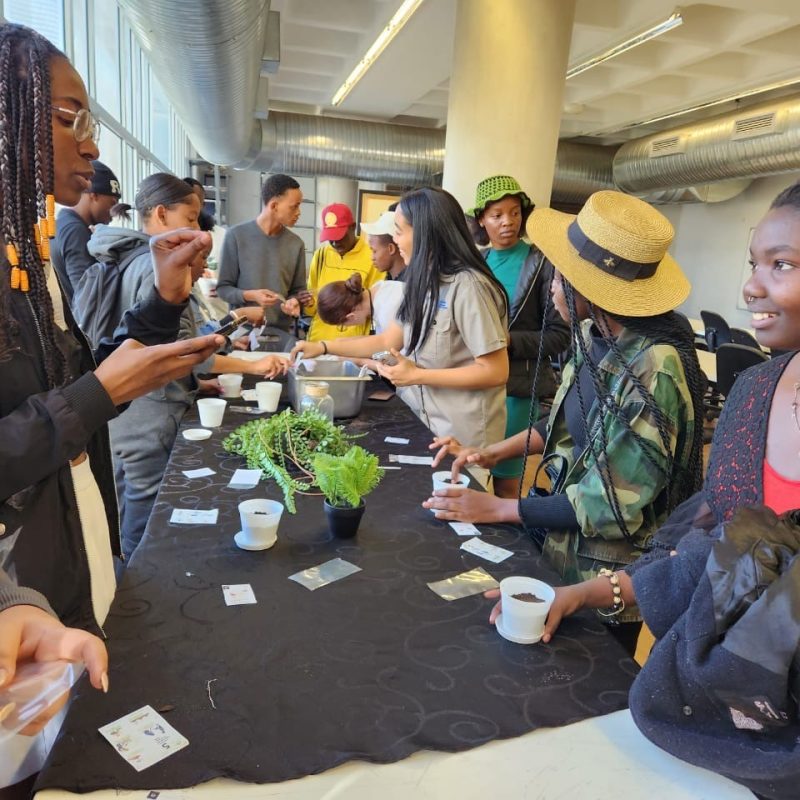
Kaylah Cordom from Windhoek:
Art x Afrifoodlinks – Nurturing Sustainability Through Creativity:
The Windhoek city-level activation hosted by Kaylah brought together young minds from various fields to share ideas on food systems, sustainability, and urbanism. A highlight of the event was the incredible artwork created by TK, aka Skhooli, and the massive art collaboration piece done by the attendees. It featured a hidden image of a baby eating a mango above a market with stop-and-go umbrellas. To see it, you needed an inverted filter, and scanning a QR code revealed a virtual artwork of Windhoek’s famous “Stop and Go” market, where vendors sell food and vegetables.
Leo, an attendee, said, “It was vibrant and lovely, we got to learn more about vegetable plants and how we have to incorporate our own African idea of a solar punk future”. To Kaylah, the event showcased the power of community in driving sustainable food practices.
“This blend of creativity and practicality can inspire future projects that improve food security and sustainability in Windhoek.” – Kaylah Cordom
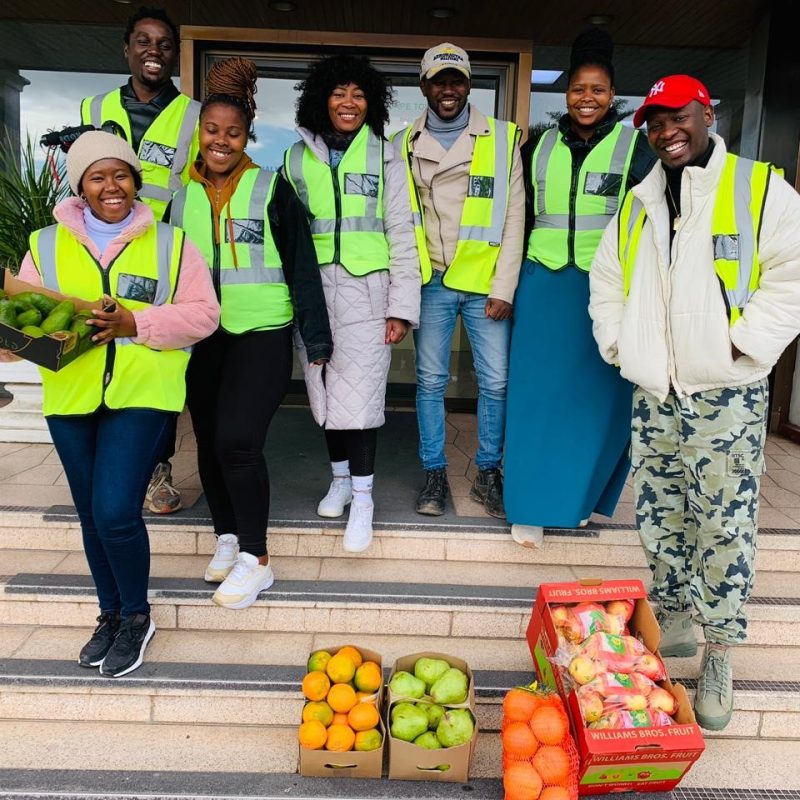
Sindile Kamlana from Cape Town:
Cape Town Market Tour: 18 June 2024
Sindile invited young entrepreneurs who run development organisations in Cape Town to join a tour to the Cape Town Market in Epping. David Nortjie, the floor manager, provided a historical overview of the market including its evolution from Green Market Square, to a centralised, state-owned fresh produce market to the current city-run facility. Today about 75% of all buyers are informal traders. The tour participants felt moved by this, because they interact with and rely on informal fresh produce traders.
“This is one of the reasons I chose to do my activation here. In my late teenage years I used to help run a fruit and vegetable stall and we bought fresh produce at this very same market.” – Sindile Kamlana
The participants registered as independent buyers after the tour and now have access to fresh produce at retail prices. Sindile wants more people to know how pivotal the role of markets in the food system is and hopes that more people will learn about the Cape Town Market to tap into the opportunities it has to offer.
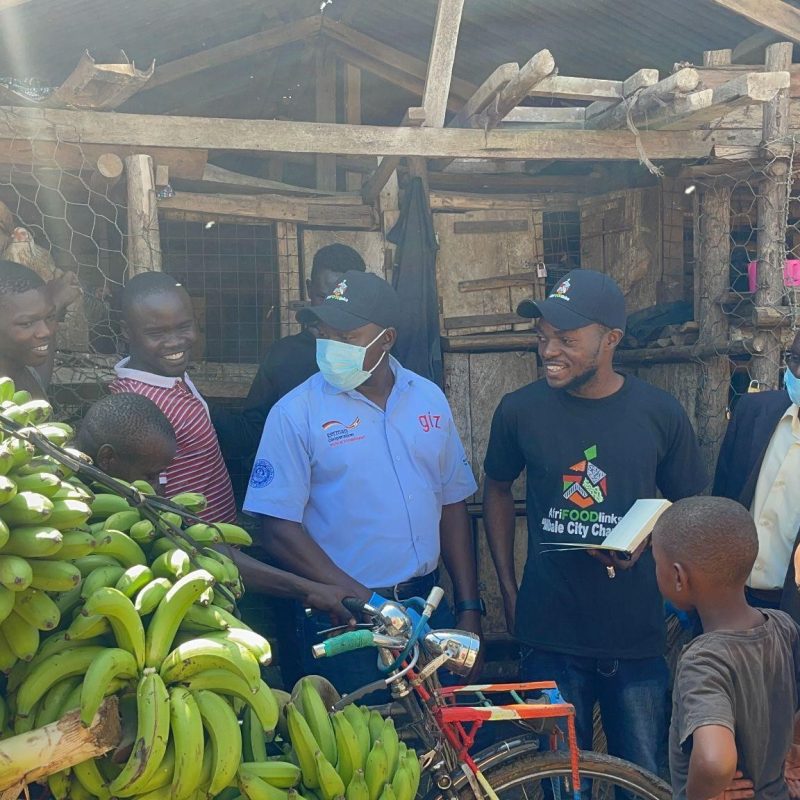
Sam Wesamoyo from Mbale:
Namakwekwe Market Tour and Clean-up: 25 May 2024
Sam coordinated a group visit to the Namakwekwe Market, more commonly known as Kikindu Market in Mbale, to raise awareness around the needs of fresh produce vendors and the challenge of food safety in secondary markets in the city.
After an initial meeting with market management, the participants conducted a general clean up of the market space focusing on the fresh foods, restaurant, and chicken sections. Sam engaged in one-on-one discussions with vendors to gather challenges and suggestions they would like to bring to the attention of the market management. This was a fruitful opportunity to discuss key issues such as the need for food handling and safety training, poor drainage, and inadequate cleaning procedures at the market.
Both vendors and management expressed that further training and more investment into stalls, like at the Central Market, would improve the experience and standards of Kikindu Market. Overall, the vendors appreciated the cleaning activity and suggested it should occur more frequently. Local partner, Consent, is considering providing capacity building to the market vendors and market leadership in response to these outcomes.
“As they were sweeping, one vendor said, ‘How I wish you could be doing this cleaning often, we would have a very clean market’ and he was seconded by several others. To me, it was really fulfilling and a great feeling that the vendors were appreciating the work and as well calling for better from their leaders.” – Sam Wesamoyo
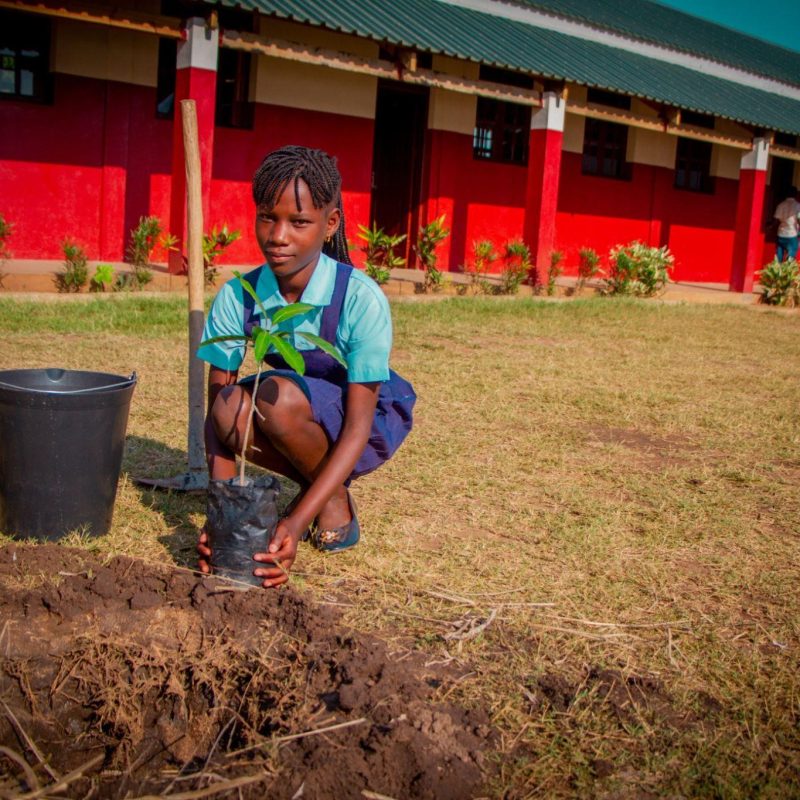
Fernando Sozinho from Quelimane:
Promoting green urban spaces: 5 June 2024
Quelimane city lies at the mouth of the River of Good Signs. Despite its name, the city has recently been highly vulnerable to floods and the impacts of climate change. In 2023, cyclone Freddy wreaked havoc on the coastal vegetation. On World Environment Day, Fernando along with more than 20 young environmentalists, local authorities, and schoolchildren gathered at Zalala Beach in Maquivale to reforest the area. Participants planted over 50 casuarinas fruit trees and then moved to a local school to plant a variety of donated fruit trees. The event, initially aimed at fostering environmental education among scholars, emerged into a blend of meaningful work and community engagement, filled with moments of fun, dancing, and collective effort, demonstrating the power of community in promoting green urban spaces.
“If we intend to create the most sustainable world for our children, then the transformation has to happen now and here.” – Fernando Sozinho
Building a cohesive network
This first cohort of youth ambassadors is developing into a cohesive network for transforming urban food systems, sharing the place-based interests of sometimes underrepresented people. So far, since October 2023, fifteen youth ambassadors have been appointed, with eight more to be on-boarded in September. The 23 youth ambassadors are set to contribute to an intergenerational dialogue at the AfriFOODlinks Consortium meeting from November 25-29, 2024, in Cape Town.
The youth ambassadorship programme has undoubtedly added value to the AfriFOODlinks project. The youth ambassadors have brought multiple, diverse and sometimes unexpected perspectives into the project. Through telling the stories of various project and non-project stakeholders, they are crafting new ways for us to view and understand the complexities and intricacies of localised urban food system transformation.
Support the movement
Follow them on social media to engage with often unexpected stories about urban food systems in their cities. Stay updated on our latest activities and impacts by subscribing to the AfriFOODlinks quarterly newsletter. Track the project online under the hashtags #AfriFOODlinks, #ThroughFood, #FOOD2030EU, #OurFoodStories, #ByYouth, #OurFuture.
Explore
"Youth story"

Read more about
"Youth story"
READ MORE
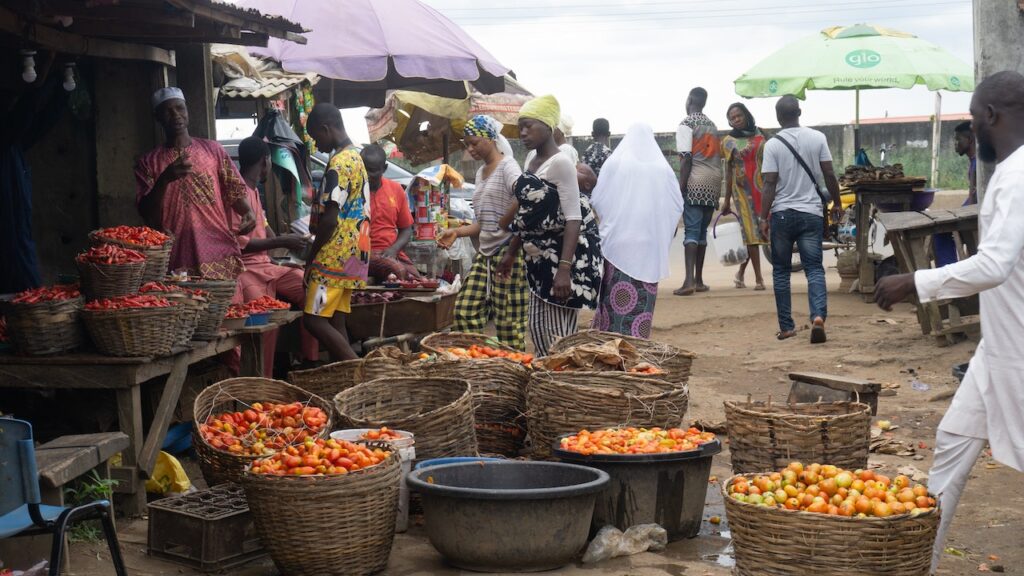
Cultivate Marketplace for transforming African urban food systems: Building bridges between cities and global funders
Unlike a traditional pitch event, the Marketplace will create a structured, low-risk space where cities and funders can learn from one another, exchange insights, and explore alignment.


